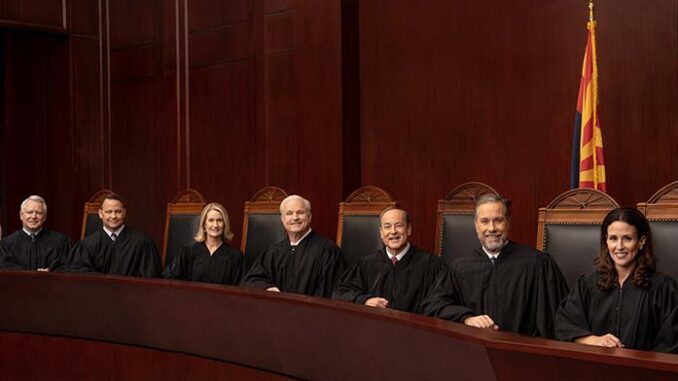
On Friday, the Arizona Supreme Court ruled that Proposition 140 will remain on the ballot despite the fact that its supporters failed to secure the legal number of signatures required to place it there.
The case before the court involved a challenge by the Free Enterprise Club of the signatures gathered to place the measure on the 2024 general election ballot.
The Club found that 38,000 of the signatures submitted in support of the measure were duplicates. Without those duplicated signatures, the measure would not have qualified to be on the ballot.
Despite this finding, the Arizona Supreme Court unanimously ruled that votes in the November General Election for Proposition 140 would be tabulated.
“We are disappointed in the ruling of the court on this matter,” said Scot Mussi, President of the Arizona Free Enterprise Club. “Our organization proved that the special interest groups attempting to hijack Arizona’s elections systems lacked the minimum number to qualify for the ballot to even be considered by voters in November. The special master in this case also ruled that 99% of the signatures in question should be disqualified. The committee behind the measure was aware of the duplicates, yet they obstructed and delayed the review of the duplicate signatures for over a month.”
Proposition 140 is seeking to enact a California-style election scheme built around ranked choice voting and jungle primaries.
If passed by voters, The Make Elections (Un)Fair Act would do the following for future Arizona elections:
- Allows one politician, the Arizona Secretary of State, to decide how many candidates qualify for the general election ballot for every single contest, including his or her own race.
- Would result in some races where candidates from only one political party appear on the general election ballot.
- Would force voters to navigate two completely different voting systems on the same ballot, with some races requiring voters to rank candidates and others that do not.
- Will increase tabulation errors, create longer lines at the polls, and significantly delay election results.

